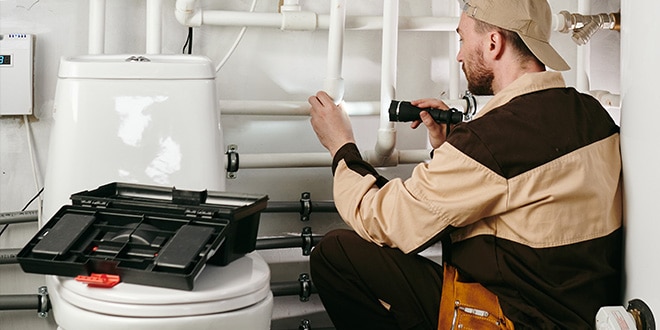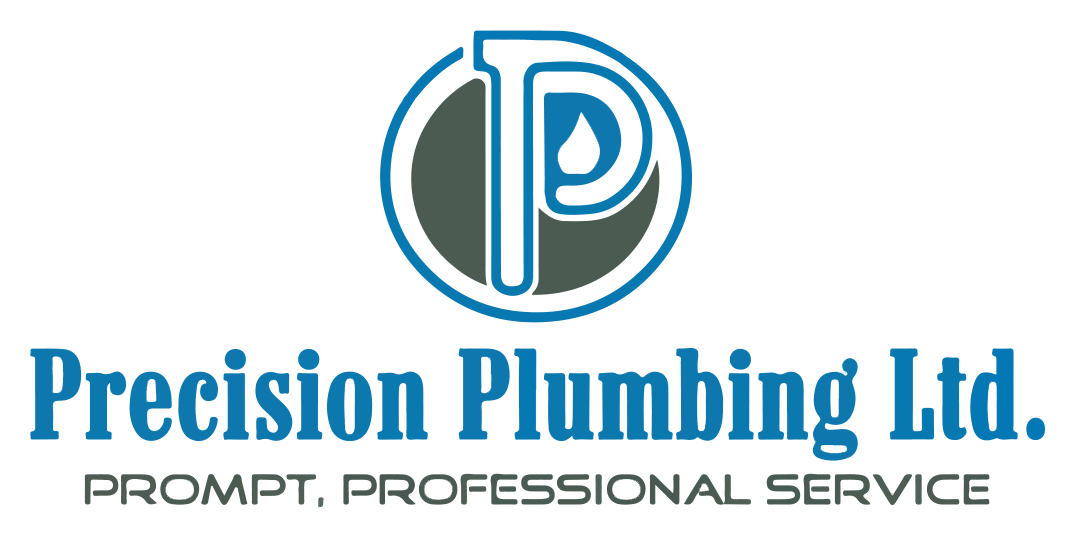
If you’re a homeowner in Calgary, you will need to know something about plumbing sooner or later. Even if you don’t do your repairs, it’s helpful to understand the basics so you can talk to contractors and understand what happens when something goes wrong. This guide gives you a comprehensive overview of plumbing, from fixing a leaky faucet to replacing a water heater. We’ll cover all the most common problems and solutions so that you can be prepared for anything.
What is plumbing?

Plumbing is the process of installing, repairing, and maintaining the water supply and drainage systems in a building. It is a very important part of any structure, as it is responsible for keeping everyone in it safe and healthy. Plumbers must be knowledgeable in a variety of areas, including construction, engineering, and chemistry.
A career in plumbing can be very rewarding, as it allows you to help people and make their lives easier. It can also be challenging, as there is a lot to learn in order to become a proficient plumber. However, with hard work and determination, anyone can become a great plumber.
What are the different types of plumbing?
There are many different types of plumbing, each with its own purposes. Some of the most common types of plumbing are:
Pipe: This type of plumbing is often used for carrying water in large quantities, and is often found in industrial settings.
Hose: This type of plumbing is often used to carry water in smaller quantities, and is often found in residential or commercial settings.
Pipefitting: This type of plumbing is used to join pipes together, and can be made from a variety of materials including plastic, copper, and galvanized steel.
Valve: This type of plumbing is used to control the flow of water through a pipe, and can be made from a variety of materials including brass, steel, and plastic.
Fitting: This type of plumbing is used to connect hoses to pipes, and can be made from a variety of materials including brass, steel, and plastic.
There are many other types of plumbing, but these are some of the most common. Each type has its own purpose, and each is made from a different material. When choosing to plumb for your home or business, it is important to choose the right type of plumbing for the job.
How does plumbing work?
If you’re like most people, you probably take plumbing for granted. You turn on the faucet, and water comes out. You flush the toilet, and it all goes away. But have you ever stopped to think about how it all works? It’s pretty amazing when you think about it. Plumbing is a network of pipes that carry water and other fluids to and from your home. It starts with the main water line that brings water into your house. From there, it travels through a series of smaller pipes until it reaches the fixtures in your bathroom or kitchen. Each institution has its own set of valves that control water flow.
There are also special valves called backflow preventers that keep wastewater from flowing back into the main water line. The pipes in your home are usually made of copper, plastic, or galvanized steel. They’re connected with special fittings that use compression or soldering techniques. For plumbing to work properly, it needs a constant water supply and air pressure. The city’s water department creates the water pressure, while your home’s air conditioning system supplies the air pressure. If there’s a problem with your plumbing system, it can be pretty tricky to fix. That’s why it’s always best to call a professional plumber when something goes wrong.
What are some common problems with plumbing?
When it comes to plumbing, there are a few common problems that can occur. Leaks, clogs, and water pressure issues are the most frequent problems. Leaks are probably the most common problem, and they can occur anywhere in the plumbing system. A leak can cause water damage to your home, so it’s important to address it as soon as you notice it. Clogs are another common issue. They can occur in the drain pipes or in the main sewer line. If left untreated, a clog can eventually lead to a backup of wastewater in your home.
Water pressure issues are also common. This can be caused by a number of things, such as a kink in the piping, a build-up of sediment, or even a broken water heater. If you’re experiencing low water pressure, it’s important to have it checked out by a professional. While these are some of the most common problems that occur with plumbing, there are a few other less frequent issues that can pop up from time to time. These include burst pipes, frozen pipes, and seismic activity.
How can I prevent problems with my plumbing?
As a homeowner, it’s important to be aware of the potential problems that can occur with your plumbing system. Fortunately, by taking some preventative steps, you can help avoid many common issues. One of the most important things you can do is to keep your drains clear. regularly using a plunger or drain cleaner can help remove any built-up debris that might cause a clog. You should also avoid pouring grease or oil down the drain, as this can congeal and form a blockage.
Another common issue is water damage. To help protect your home, make sure you have proper insulation and ventilation in place and check regularly for any signs of leaks. It’s also important to schedule regular maintenance checks with a qualified plumber, who can help catch any potential problems before they become serious. By following these simple tips, you can help keep your plumbing system running smoothly and prevent costly repairs down the road.

Who should I call if I have a problem with my plumbing?
If you’re experiencing a plumbing emergency, don’t hesitate to call a professional. A plumbing emergency can be a serious issue, and if left untreated, can cause significant damage to your home. There are a few things you can do to minimize the damage in the event of a plumbing emergency. If water is leaking from a pipe, turn off the water valve nearest to the leak. If water is flowing from a faucet, turn off the water at the main valve. If the problem is with your sewage system, try to limit the amount of water that goes down the drain. If you’re not sure who to call, your local plumber’s association can provide you with a list of qualified professionals in your area.
Summary
Plumbing is an essential part of any home, and it’s important to know how to fix basic plumbing problems yourself. This comprehensive guide provides everything you need to know about plumbing, from fixing a leaky faucet to unclogging a drain. If you can master the basics, you’ll be able to take care of the most common plumbing problems without calling in a professional.
At Precision Plumbing Ltd, we understand the importance of plumbing in any home. That’s why we offer comprehensive plumbing services, from fixing a leaky faucet to unclogging a drain. We also provide education and training so that you can master the basics and take care of common plumbing problems on your own. Contact us today at +1 403-241-5200 to learn more about our plumbing services in Calgary, ON and how we can help you take care of your home’s plumbing needs!




